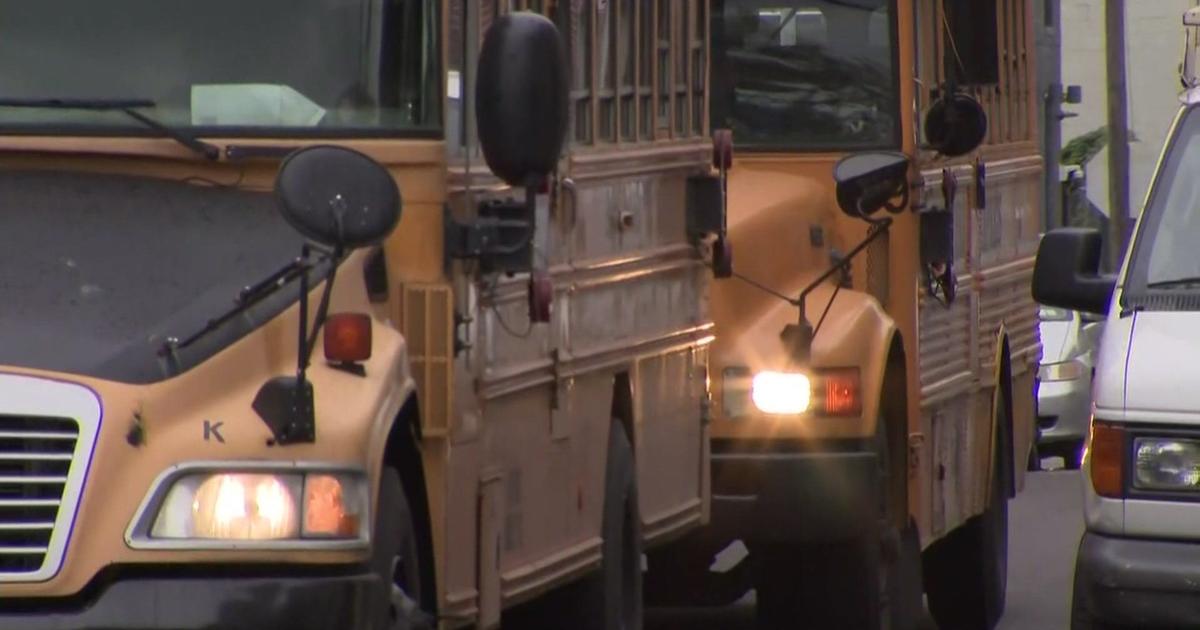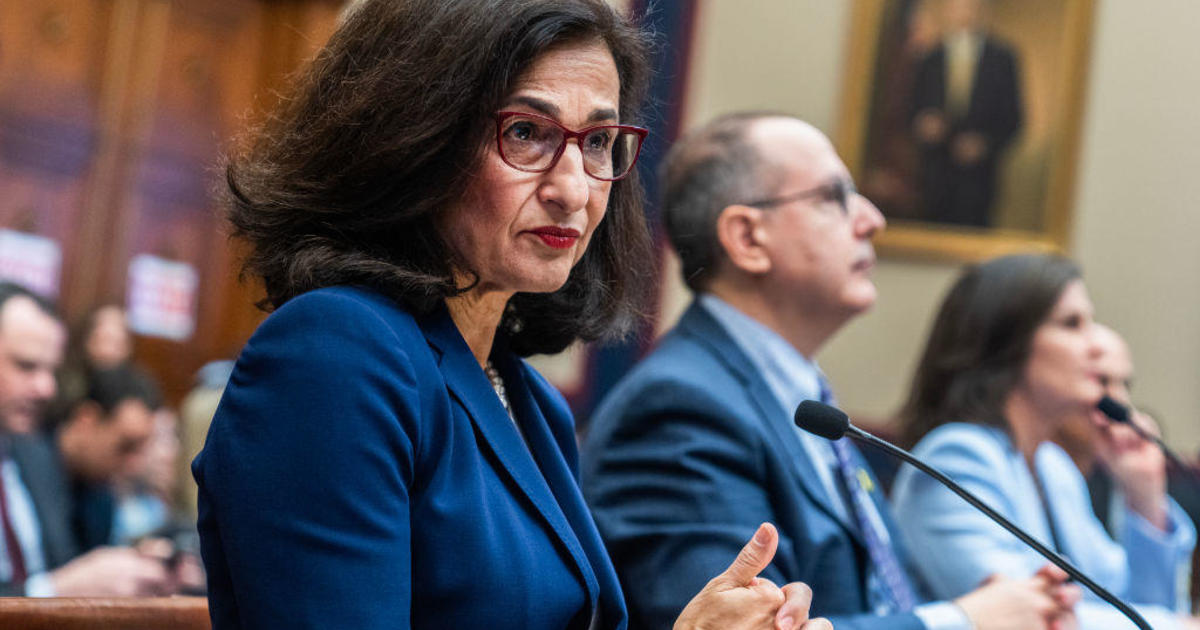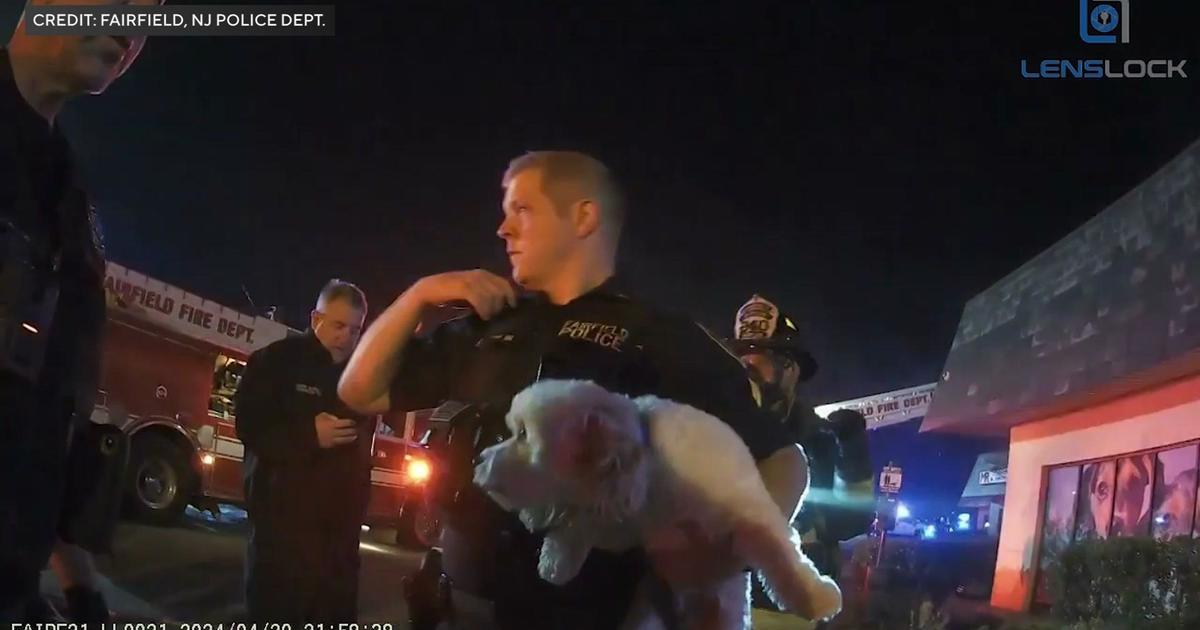ISIS Claims Responsibility For Deadly Church Blasts In Egypt
CAIRO (CBSNewYork/AP) -- Bombs exploded at two Coptic churches in different cities in northern Egypt as worshippers were celebrating Palm Sunday, killing at least 43 people and wounding about 100 in an assault claimed by the Islamic State.
The blasts came at the start of Holy Week leading up to Easter, and just weeks before Pope Francis is due to visit the Arab world's most populous country, which has been beset by extremist violence against its minority Christians.
PHOTOS: Dozens Killed In Palm Sunday Church Bombings In Egypt
In the first attack, a bomb went off inside St. George's Church in the Nile Delta city of Tanta, killing at least 27 people and wounding 78, officials said.
A few hours later, a suicide bomber rushed toward St. Mark's Cathedral in the coastal city of Alexandria, the historic seat of Christendom in Egypt, killing at least 16 people and wounding 41, the Interior Ministry said.
CCTV images broadcast on Egyptian channels showed a man in a blue pullover approach the main gate to St. Mark's but being turned away and directed toward a metal detector. The man then passes a female police officer chatting to another woman, and enters a metal detector before an explosion engulfs the area.
Pope Tawadros II had held Palm Sunday services at the cathedral, but his aides said he had escaped unharmed. The timing of the attack raised the question of whether the bomber had sought to assassinate the pope, leader of one of the world's oldest Christian communities.
IS claimed the attacks via its Aamaq news agency, after having recently warned that it would step up violence against Egypt's Christians.
CBC TV showed footage from inside the church in Tanta, where people gathered around what appeared to be lifeless, bloody bodies covered with papers.
"After the explosion, everything became dark from the smoke," said Edmond Edward, attending services with his brother, Emil, who was wounded and leaned on him for support at a nearby hospital, his head covered in bandages.
"There was a clear lapse in security, which must be tightened from now on to save lives," he said. He added that the blast appeared to be centered near the altar and that the priest leading the service, Father Daniel, was wounded.
Susan Mikhail, whose apartment balcony across the street has a clear view of the church and its front yard, said the explosion violently shook her building.
"Deacons were the first to run out of the church. Many of them had blood on their white robes," she told The Associated Press. Later, the more seriously wounded were carried out by other survivors and taken to hospitals in private cars, she said.
Hundreds of residents gathered in the area, and church members blocked people -- including journalists -- from entering the church as police cordoned off the area.
Regional police chief Brig. Gen. Hossam Elddin Khalifa was fired over the incident, with Maj. Gen. Tarek Hassouna replacing him, state-run newspaper al-Ahram reported.
Pope Francis, marking Palm Sunday in St. Peter's Square, decried the bombings, expressing "deep condolences to my brother, Pope Tawadros II, the Coptic church and all of the dear Egyptian nation."
He is due to visit Egypt April 28-29.
The US State Department has called the bombings "barbaric attacks."
President Donald Trump tweeted that he is "so sad to hear of the terrorist attack" against the U.S. ally but added that he has "great confidence" that Egyptian President Abdel-Fattah el-Sissi, "will handle the situation properly." The two leaders met at the White House on April 3.
Both Israel and the Islamic Hamas movement ruling neighboring Gaza also condemned the bombings.
"As we grieve the tragic & heartbreaking loss of Egyptian lives, it is still a failed attempt against our unity," Ahmed Abu Zeid, spokesperson of the Ministry of Foreign Affairs of Egypt said in a tweet Sunday.
The U.S. Embassy in Cairo also condemned the attack, saying "the United States stands firmly with the Egyptian government and people to defeat terrorism."
The bombings add to fears that Islamic extremists who have long been battling security forces in the Sinai Peninsula are shifting their focus to civilians.
In response to the terror attack, the NYPD has stepped up security at houses of worship across the city, including St. Patrick's Cathedral in midtown Manhattan. At Mass Sunday, Cardinal Timothy Dolan asked everyone to pray for the victims and for Passover.
"As we ask for the Lord's blessing upon our Jewish neighbors as they begin tomorrow the celebration of Passover, and upon our Egyptian Coptic Orthodox brothers and sisters who have suffered yet another terrorist attack in Cairo this Palm Sunday morning," Dolan said.
An Islamic State affiliate claimed a suicide bombing at a Cairo church in December that killed around 30 people, mostly women, as well as a string of killings in the restive northern Sinai that caused hundreds of Christians to flee to safer areas of the country.
The group recently released a video vowing to step up attacks against Christians, who it describes as "infidels" empowering the West against Muslims.
Malik Shafik is a member of the St. Mary and St. Demiana Coptic Christian Church in North White Plains. Originally from Egypt, he says the timing of the attacks was no coincidence.
"They try to take the joy from us," he tells CBS2's Brian Conybeare. "This is not the first time it happened on a holiday."
During an evening service Sunday, the parishioners did their best to honor the Christian value of forgiveness on a very dark day in their homeland.
Egypt has struggled to combat a wave of Islamic militancy since the 2013 military overthrow of an elected Islamist president.
The Sinai-based IS affiliate has mainly attacked police and soldiers, but has also claimed bombings that killed civilians, including the downing of a Russian passenger plane over the Sinai in 2015, which killed all 224 people on board and devastated Egypt's tourism industry.
Egypt's Copts are one of the oldest Christian communities in the Middle East. They have long complained of discrimination and that the government does not do enough to protect them.
Egyptian media had previously reported that the church in Tanta had been targeted in the past, with a bomb defused there in late March.
The Copts were largely supportive of the military overthrow of Islamist President Mohammed Morsi, and incurred the wrath of many Islamists, who attacked churches and other Christian institutions after his ouster.
Egyptian President Abdel Fattah el-Sisi has declared a state of emergency in response to the Palm Sunday attack. He says it will last for the next three months.
(© Copyright 2017 CBS Broadcasting Inc. All Rights Reserved. The Associated Press contributed to this report.)



